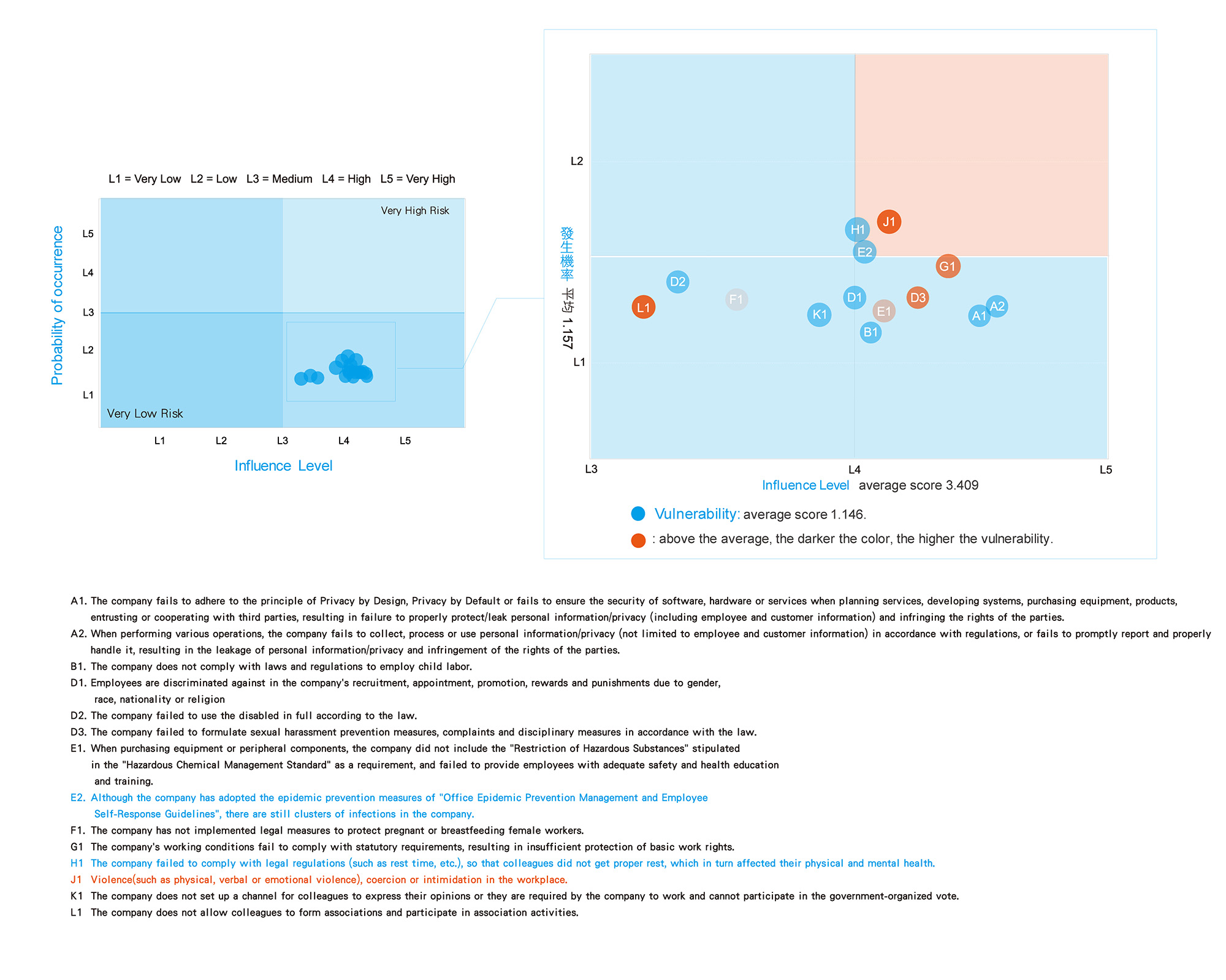
- About Us
- Investor Relations
- ESG
- Product & Service
- Customer Service
Customer Service
- Visiting Taiwan

Taiwan Mobile Co. (TWM) believe that shaping an environment that adequately protects human rights is intimately connected to corporate sustainability. We recognize and support the “Universal Declaration of Human Rights”, “UN Global Compact”, “UN Guiding Principles on Business and Human Rights”, “ILO Declaration on Fundamental Principles and Rights at Work" and relevant local laws and regulations. We also require all employees (own operations), suppliers, contractors, business partners, and their vendors are required, to ensure that their business activities, including collaborative efforts, comply with the TWM's human rights policy. This is to ensure that all individuals associated with the company, whether internal or external, including full-time and part-time employees and customers, are treated fairly and with dignity. By conducting human rights assessments and due diligence, we can strengthen and improve the human rights awareness of our employees and stakeholders.
Taiwan Mobile's Human Rights Policy shall apply to the Company's subsidiaries, any foundation constituted as a juristic person to which the Company's direct or indirect accumulated contribution of funds exceeds 50% of the total funds received, and other institutions or juridical persons which are substantially controlled by the Company. The Policy consists of four principal categories: support for international human rights conventions, respect for human rights in the workplace, fulfilling information security obligations, and investing core resources to respond to the needs of the society.




We have a strategy to systematically implement corporate social responsibility, starting from the real needs of society, combined with our core business to realize our goal of sustainable development; the use of core technical capabilities, as well as telecommunications, network and digital convergence resources for social needs to fulfill our corporate responsibility and create greater social benefits.
Scope of investigation: Taiwan Mobile all departments and subsidiaries, include overall value chain, and cover new business relationships like mergers, acquisitions, joint ventures...etc.
Guiding principles: United Nations "Universal Declaration of Human Rights", "Guiding Principles on Business and Human Rights", "Business and Human Rights in the Information and Communication Technology Industry", and the ILO’s Declaration on Fundamental Principles and Rights at Work and relative domestic laws and regulations, such as Labor law, Gender equality law, and other labor safety regulations.
Covers the entire group and subsidiaries. Value chain: employees, suppliers, customers and communities. 100% coverage.
| Value Chain | Assessment Mechanisms | Scoop (Number of locations implementing human rights mitigation measures) |
Questionnaire Return Rate | ||
|---|---|---|---|---|---|
| Upstream Supply Chain |
Supplier | Supplier ESG Questionnaire | Tier-1 Supplier | 402 | 95% |
| Own Operation | Employees | Questionnaire survey | All business groups and subsidiaries of the Company | 10 | 97.6% (A total of 942 questionnaires were distributed and 919 questionnaires were collected.) |
| Downstream (Products/services) |
Customer | 366 direct stores 299 franchise stores |
665 | ||
| Local Community | |||||
The results show that the 15 human rights issue indicators all fall within the range of "high impact, low probability of occurrence and low vulnerability".

According to relevant international Human Rights guidance documents, domestic laws and regulations, and with reference to Human Rights reports of telecommunications and related electronic technology industries and enterprises, collect Human Rights risk issues related to basic Human Rights, working environment to compile a “Human Rights Risk Issues" checklist.
Download: Taiwan Mobile - Human Rights Risk Issues
2.1 Focus group discussion:
2.2 Questionnaire survey:
2.3 Human Rights risk exposure results :

From the aspect of the value chain (suppliers, employees, customers, and community), and based on the "Human Rights Risk Exposure Matrix" generated in Step 2, check related Human Rights risk happened in value chain, ask department in charged to note management, implement corrective action, and track implementation results. Finally, compile a Human Rights risk due diligence report.
Review every three years (Step 2.1), to review our existing goals and progress, and keep an eye out for new potential problems to assess the effectiveness of our corrective actions. Through this continuous iterative process, we hope to effectively manage Human Rights issues.
Every two years, conduct a questionnaire survey (2.2), and follow-up "Human Rights Risk Exposure Matrix" (2.3) Every year review Human Rights Risk Due Diligence Report (Step 3), to confirm the effectiveness of the implementation.
Transparently disclose the Human Right policy and the relative result of due diligence on the website of Taiwan Mobile.